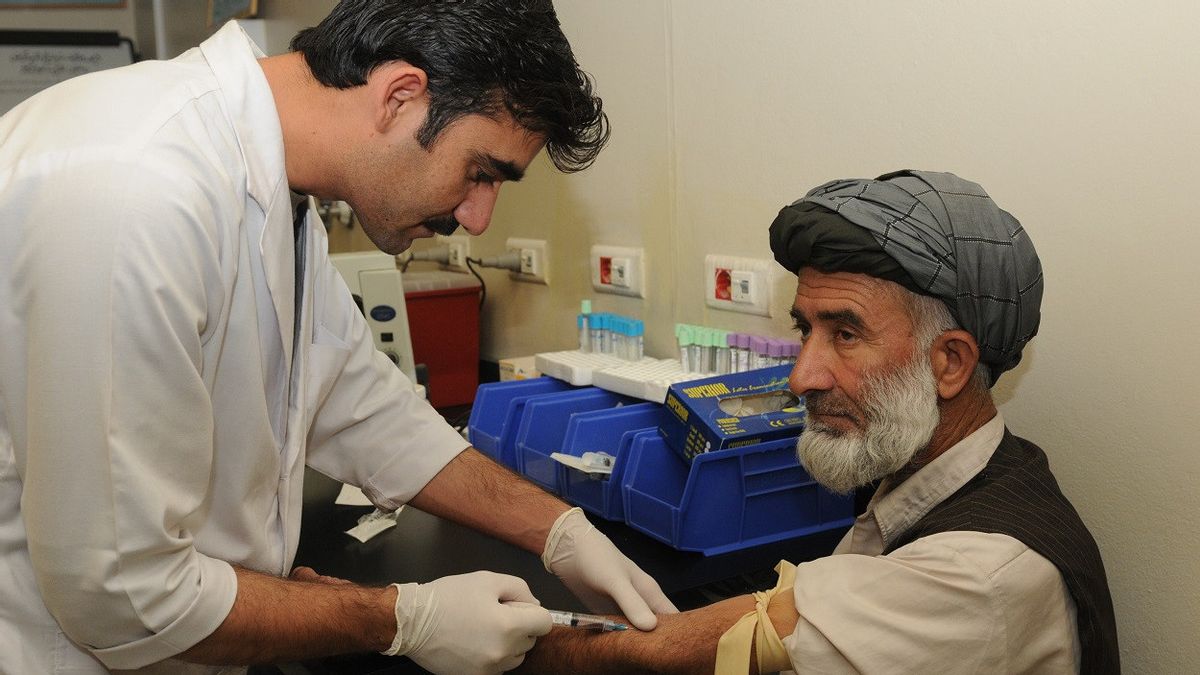JAKARTA - Afghanistan's health system is on the verge of collapse, a top Red Cross official warned Thursday, saying more than 2,000 health facilities had been closed across the conflict-torn country.
The International Federation of Red Cross and Red Crescent Societies (IFRC) warns that a lack of funding has pushed Afghanistan's health system to the brink.
"People may agree to work without pay for a few more weeks," Alexander Matheou, director of IFRC Asia Pacific, said at a press conference in Kabul, citing Daily Sabah September 30.
"But once the drugs run out, if you can't turn on the light, if you don't have anything to offer someone who comes to your clinic, then they close the door."
Devastated by more than four decades of war, Afghanistan's economy has stalled since the Taliban's takeover last month, amid sanctions and a halt in foreign aid. This is particularly detrimental to the health sector, which was primarily run by non-governmental organizations (NGOs) with internal funding before the Taliban came to power.
"More than 2,000 health facilities have been closed," Matheou told Agence France-Presse (AFP) at the end of a four-day visit to Afghanistan.
The conditions have also impacted the country's more than 20,000 health workers no longer working, or working without pay, he said. More than 7,000 of them are women.
Vaccine expiredMeanwhile, the World Health Organization (WHO) warned last week that less than a fifth of the country's health facilities remained fully functional, with two-thirds running out of essential medicines. This can have dire consequences, including the response to the COVID-19 pandemic.
In a country where only about 1 percent of people have received the COVID-19 vaccine, more than 1 million doses are waiting to be distributed. They expire at the end of the year, Matheou said.
The Afghan Red Crescent, which has worked in Afghanistan for decades, including in areas controlled by the Taliban during the insurgency, is part of the IFRC network and runs 140 primary health clinics across the country.
The clinics, which have served about 1 million people since the start of the year, all remained fully functional and experienced a surge in activity as other health facilities began to close, Matheou said.
It comes on top of the multiple crises that lurk in Afghanistan, from a drought causing severe food shortages to mass displacement.
Separately, the United Nations says more than 18 million Afghans, more than half the population, are in desperate need of aid, while a third are at risk of starvation.
The international community has also pledged US$1.2 billion in humanitarian aid, but it will take time to get those funds flowing.
Meanwhile, the Geneva-based IFRC on Thursday asked for 36 million Swiss francs (38.5 million US dollars) to provide emergency relief and relief assistance to more than half a million people in the provinces worst hit by drought and severe displacement.
The English, Chinese, Japanese, Arabic, and French versions are automatically generated by the AI. So there may still be inaccuracies in translating, please always see Indonesian as our main language. (system supported by DigitalSiber.id)













